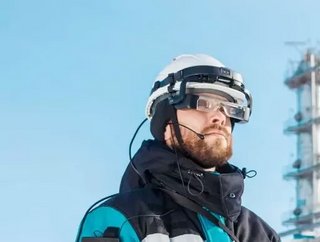SIBUR and G-Core Labs launch remote AR maintenance service

The platform was designed by G-Core Labs, and will replace physical visits by engineers with video consultations using augmented reality glasses. Testing of the glasses and cloud systems had been undertaken since 2018 at one of SIBUR’s production facilities in the city of Tobolsk.
The head of SIBUR Industry 4.0 practice, Alexander Leus, explained that the new remote servicing platform contains several technological innovations: “Our AR service is easy to use and includes two large key components: RealWear and Epson augmented reality glasses with pre-installed Android applications developed in collaboration with G-Core Labs and integrated with SIBUR’s own mobile media platform. This platform allows you to fully digitize the entire maintenance and repair process by organizing HD broadcasts in WebRTC format and creating a full-fledged communication platform for effective on-site specialist interactions with a remote expert. Everything is voice-controlled, freeing the hands of the person to work with the equipment”.
In comparison with other solutions currently available on the market, SIBUR’s system is more deeply integrated into the organisation’s tasks and processes, and is versatile enough to be deployed at different production sites.
The solution works using a ticket system, whereby the customer wearing the augmented glasses - typically a site manager or mechanic - is guided through the entire maintenance process, from the initial assessment to providing answers to queries. To date it has been used over 300 times.
The CEO of SIBUR Tobolsk Enterprises, Igor Klimov, commented that the new technology has made a significant impact on the costs of operating the petrochemical organisation: “One session of operational communication through our AR platform helps save several tens of thousands of dollars. These savings result from the reduction in travel expenses, hourly billing instead of full-day billing for experts, and the timely resumption of work”.
Mr Leus, the head of SIBUR Industry 4.0 practice, added that G-Core Labs had played an instrumental role in the success of this new remote maintenance technology: “It was important for us that our future partner had serious expertise both in working with WebRTC and in Android mobile development. The company successfully completed the test task of creating an application for AR glasses, which, by the way, was not performed by all tenderers, and we started work”.
“We’re happy with our collaboration with G-Core Labs. From the very beginning of the project, there was a feeling that we were working not as different teams—a contractor and our own internal team—but as a single team passionate about one big project. The coworkers took part in daily meetings, planning and sprint analyses. We discussed all issues related to technical details and openly shared information. It was very effective”






